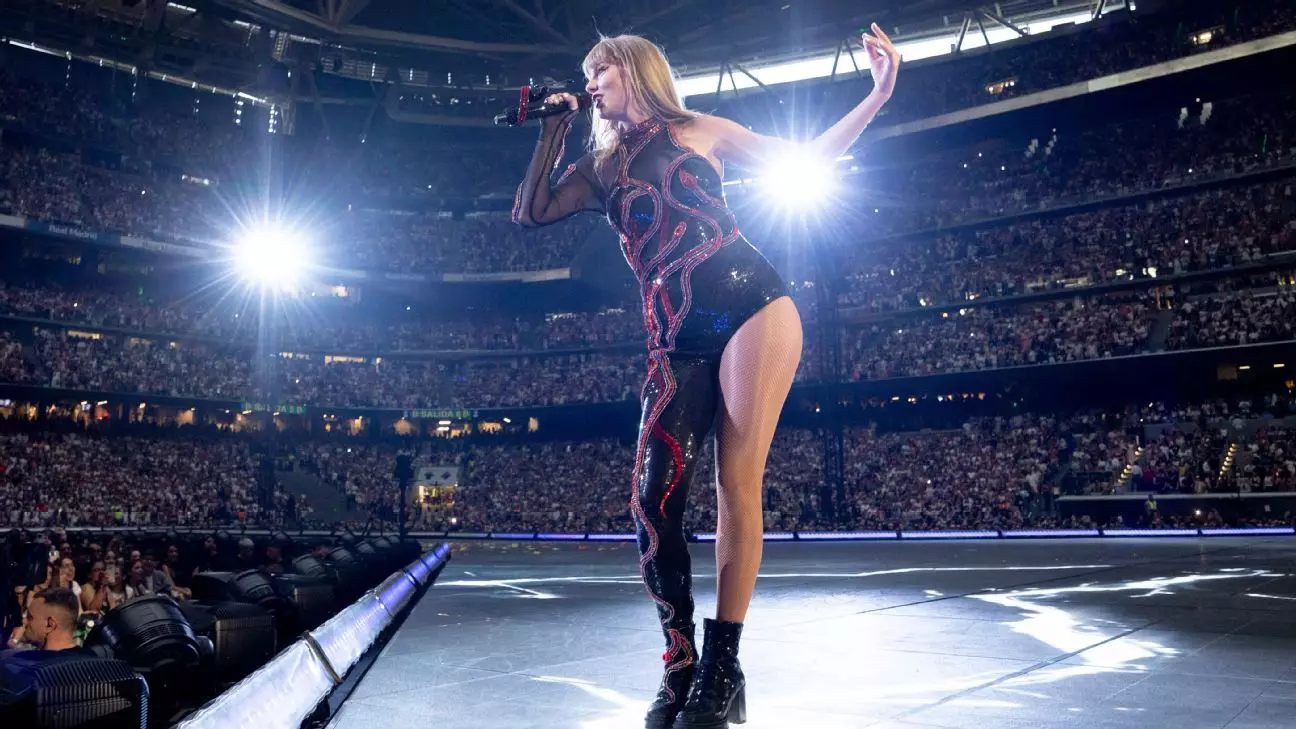Recent developments surrounding Real Madrid’s iconic Santiago Bernabéu stadium have stirred significant dialogue about the relationship between large entertainment venues and local communities. In response to an outcry from residents regarding excessive noise from concerts, the football club announced the provisional rescheduling of all upcoming concerts. This decision underscores the challenges of transforming a historic sports venue into a modern entertainment hub while maintaining harmony with the surrounding populace.
The Santiago Bernabéu has undergone a significant transformation, positioning itself as a year-round destination for music and entertainment, featuring renowned artists like Taylor Swift and Karol G. However, this ambition has not come without its complications. Local residents have reportedly voiced their concerns about noise levels becoming overwhelmingly disruptive during concert events. Their grievances highlight a growing tension in urban settings where entertainment venues attempt to coexist with residential areas.
Real Madrid’s recent announcement illustrates a commitment to addressing these noise-related issues, emphasizing a desire for compliance with municipal regulations. This indicates an awareness of the need to balance vibrant entertainment offerings with the peace and comfort of nearby residents, an increasingly relevant issue as cities evolve and attract larger crowds and events.
Real Madrid has reiterated its commitment to resolving these challenges through various measures, including an improved soundproofing system. Despite such initiatives, the club acknowledged that independent promoters face difficulties in adhering to specified noise regulations. This scenario underscores a broader industry challenge: ensuring that the engaging atmosphere of live performances does not infringe on the quality of life for nearby communities.
Notably, acclaimed Spanish artists like Dellafuente, Aitana, and Lola Indigo had lined up for the venue in upcoming months, only to find their schedules disrupted. While the club hints at rescheduling these concerts, the uncertainty introduces a layer of complexity for both the artists and their eager fans.
The ongoing discussions surrounding the Bernabéu’s concert schedule bring to the forefront questions of urban planning and community engagement. Local authorities, including Madrid’s town hall, have admitted that concerts at the stadium have surpassed permissible noise limits. This acknowledgment reflects the intricate dance between the aspirations of entertainment venues and the indispensable considerations of local stewardship and environmental impact.
To address these conflicts, active dialogue between the stakeholders—Real Madrid, local residents, and city officials—will be crucial. Establishing clearer communication channels and a transparent framework for managing events could lead to a more amicable relationship, ensuring that the stadium can serve both as a cultural beacon and a responsible neighbor.
As Madrid’s iconic stadium grapples with balancing its roles as a sports and entertainment venue, Real Madrid’s proactive stance signals an intention to harmonize these demands with resident concerns. Provisional measures taken to reschedule events reflect a necessary approach to ensure compliance and community satisfaction. The performance of future concerts will serve not only as a test of sound management but also of the broader relationship between urban entertainment and residential tranquility. The way forward will require innovation, compromise, and continued engagement—essential ingredients for a successful coexistence in an ever-evolving cityscape.

